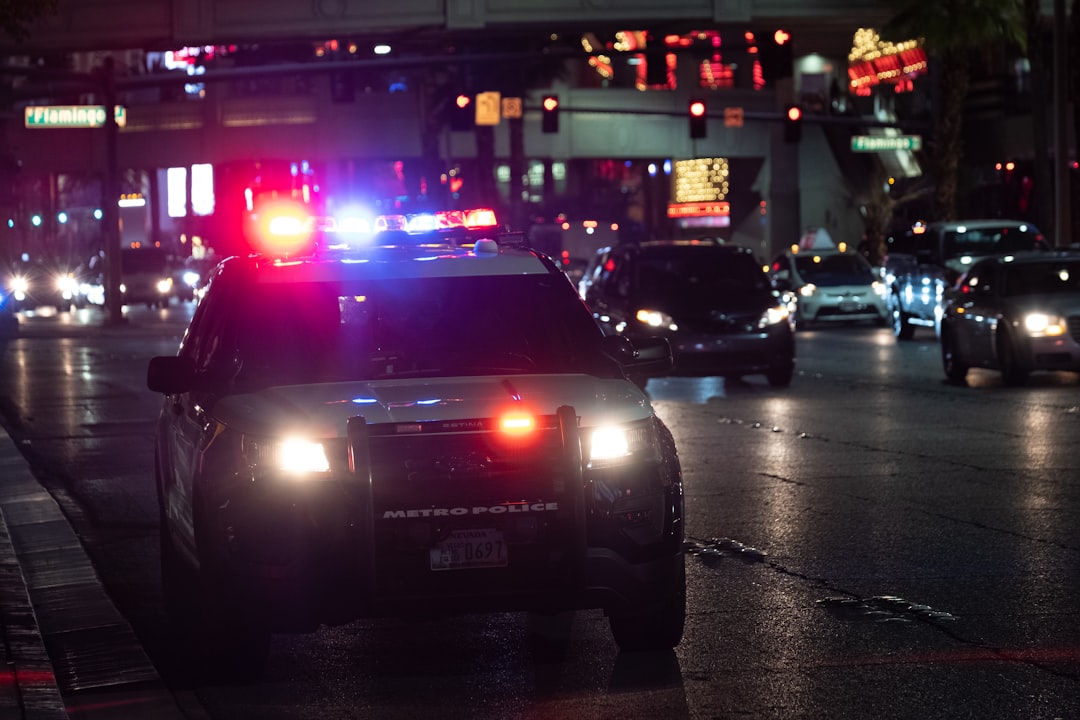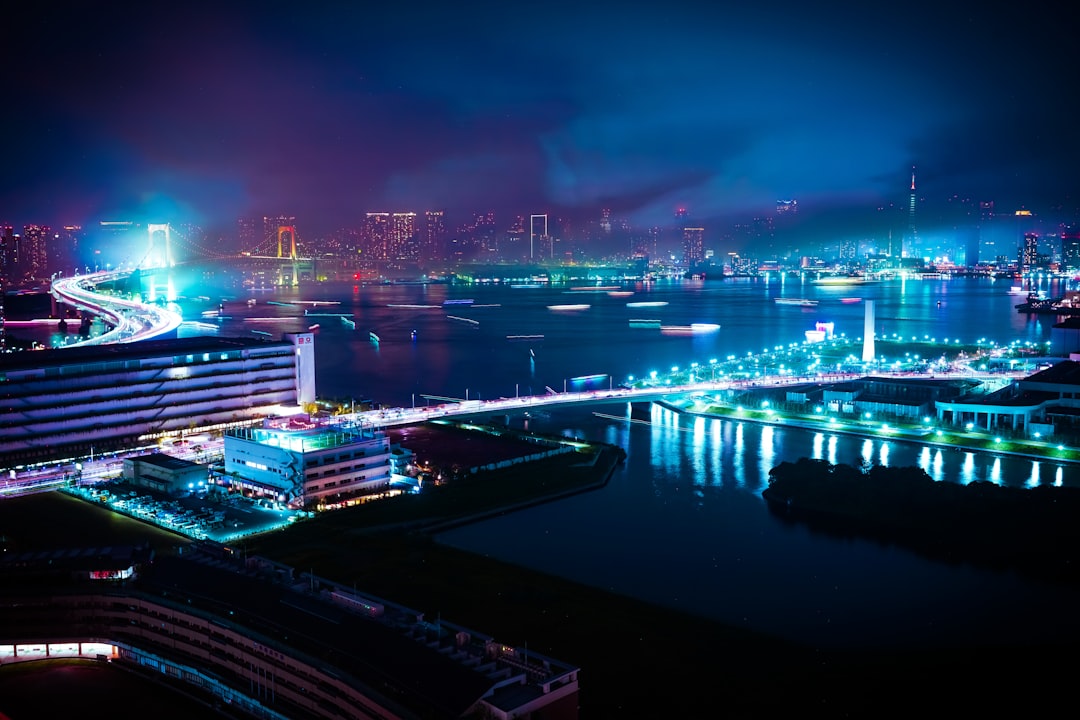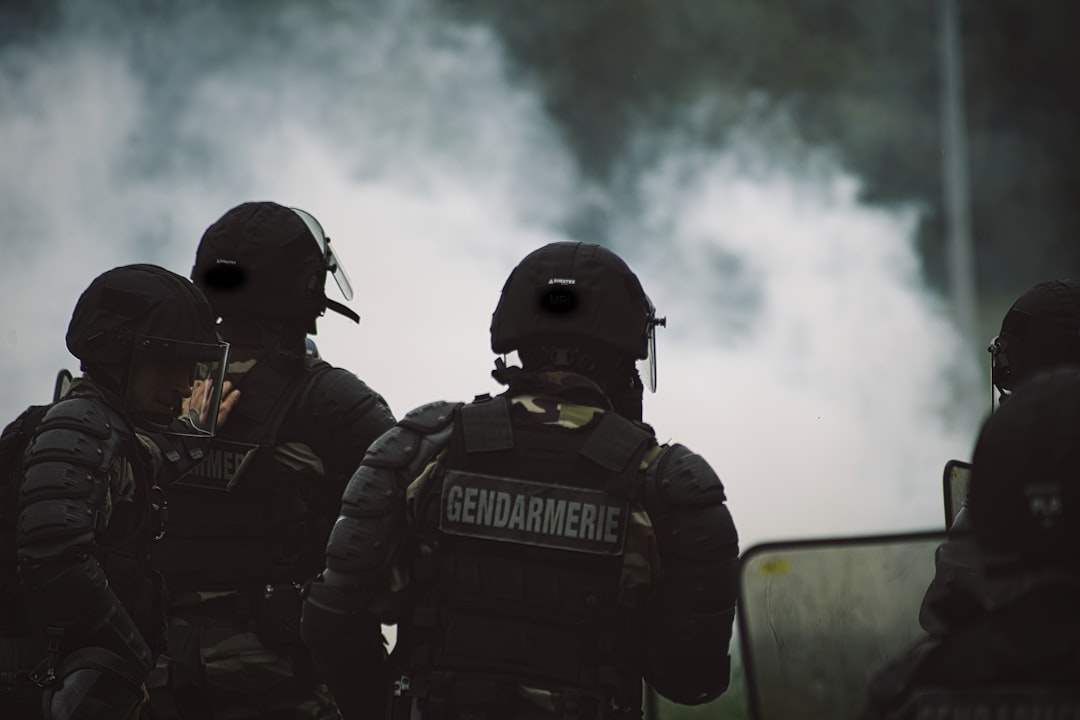A Better World Requires Abolition
We can't reach the world we need with police standing in the way
Growing up police were just a fact of life, a feature of the universe that one didn’t need to question. As a kid I would no more have questioned whether police should exist than I’d question whether or not fire hydrants should be on every block. A lot of that is growing up white, in an affluent Baltimore neighborhood where the cops didn’t even bother to come. At some point in the last few years I tried to think about how often I saw the police driving through my neighborhood growing up. I remember seeing them twice in 11 years, and one of those two times was when they were called on a high school party my friend was throwing. A mile away, in a predominantly Black neighborhood, people had to and still have to see the police daily, and cameras sit atop streetlights, sometimes emitting the blue light that lets everyone know the police are watching, always.
More recently I’ve seen, and talked about, the idea that the safest neighborhoods have the most resources, not the most police. And my childhood is one of the countless illustrations of this truth. There were no police in my neighborhood, and so clearly it wasn’t police keeping us safe. It was having what we needed. It was the stable housing, stable incomes, working cars in a city with minimal public transit that allowed folks to keep their jobs, and so much more. Meanwhile the other neighborhood, nearby, was not kept safer by those police. There were fewer resources, and when police were called to respond to violence, they responded to it with more violence of their own, whether it be assaults or arrests that take people away from their families and occupations and burden people with countless fees and costs from bail to lawyers to restrictions that come with being on parole down the road. And all that money, both the cash taken from residents of the neighborhood and the millions that went to police, was money taken out of providing for infrastructure and the needs of folks in that community, perpetuating a vicious cycle.
Nowadays I know that Baltimore spends more on police per capita than any other big U.S. city, but back then this was just the architecture of the world, to me. It was so fundamental that it never occurred to me to question it. I’d drive by cops in other parts of the city, and didn’t even think to think that I wasn’t seeing them in my neighborhood when I got home. I didn’t know what I didn’t know.

For me the wake up call was Michael Brown being killed by Darren Wilson. I was in D.C. at the time, but I had just left St. Louis and seeing the eruption from the community in Ferguson, and even more so seeing the response from police and politicians, pushed me pretty decisively. At the time, the organizers I encountered on the streets and at events in Washington were mostly talking about “police brutality” as the framework for what we should be pushing back against. That made sense to me, as I saw videos of tear gas flowing through the streets of Ferguson, and saw countless people getting arrested for the radical act of saying that police should not kill people, and that real change was needed.
In the years since, we’ve seen a horrifying number of people, disproportionately Black folks, murdered by police. Originally I was going to write about radicality this weekend. I wanted to write broadly about really going to the root of an issue, and hopefully beginning to pull at that place where a problem is most deeply embedded.
But instead the murders of Tortuguita in Atlanta, Keenan Anderson in LA, and of course Tyre Nichols in Memphis have led me to focus in on getting to the root of policing specifically, and pulling up those roots.
I think the first thing to say here is that going to the root can be difficult precisely because many institutions, like policing and capitalism and white supremacy and others, have been taught to us from a young age often in ways that are implicit just as much as they’re explicit. In other words these systems often feel like the way the world works, inherent features rather than human constructions. This makes them so difficult to address because confronting them often feels like confronting the fabric of reality itself, and that’s scary as hell. Nevertheless, it must be done. Policing has presented us, again and again and again, with an urgent need to confront the way it’s been built and ingrained into the foundation of society. Listing the many names and the many sick videos released across the country feels traumatizing and unnecessary. But for years and years we’ve seen people, often Black men but far too many others as well, murdered by police. And these deaths have gone viral, in a way that has been immensely disturbing but has also sent sparks flying across society. Then, in 2020, we saw what happens when those sparks catch fire.
For a brief moment in 2020 an astonishing and beautiful number of people were open to defunding the police. Massive numbers of people expressed sympathy with this eminently reasonable demand, but then the forces of counter-insurgency began to churn. Solutions were proposed that inevitably gave police more money, for bias trainings and more hiring and a whole range of things that would do nothing to stop them from killing. In fact, 2022 saw more police murders than any other year in the past decade, when the national recording of this data began. In the wake of the George Floyd uprising, politicians failed to pull the problem of policing up by the root, and at least 1,176 paid with their lives last year.
And we know why politicians by and large didn’t choose to defund police or move towards abolition. Policing serves an important role in the maintenance of social order. The police are the foot soldiers of capitalism. And, as much as we’ve been told that police work to keep ordinary people safe, they actually work to keep the ultra-rich safe, both physically protected and more generally safe from economic or power differential changes to society. They also work to ensure their own position in society is not disrupted, which is why they meet calm marches that protest their murders, or even murders by police committed elsewhere in the country, with mass violence. Cops want us to go home, and leave them alone, so that they can continue to collect hundreds of millions in overtime, in addition to the billions they are already allotted.
It was seeing the police meet calm protests and even vigils with immense violence, from pepper spray to breaking bones to tear gas, that really moved me from being broadly against police brutality to becoming an abolitionist. I have often recommended a book by the name of Becoming Abolitionists, by Derecka Purnell, because in it she traces her evolution from being on the streets of Ferguson with tear gas in her eyes and calling for an end to police killings to learning about the whole system of policing and calling for an end to police and the entire prison industrial complex. She and other abolitionists like Mariam Kaba and Micah Herskind and Kelly Hayes etc. have also helped clarify that so many of the reforms proposed do nothing to diminish police violence, and often increase the power of the police by giving them more money and power. In the recent murder of Tyre Nichols we see that Black police officers with body cams killed him, while they attempted to manufacture of narrative of him resisting that may have worked if there hadn’t been a surveillance camera nearby.
It is this “unreformability” combined with the knowledge that police serve as protectors of the ruling class against working class uprisings and calls for change that has led me to be an abolitionist. And if you’re wondering what makes me so certain the police serve the .01%, and not you or me, that too comes from first hand experience, and not just theory. Much like I’ve witnessed police hurt friends for calling for changes to policing, I’ve seen them hurt and repress a wide range of people advocating for any sort of positive change. I’ve seen them protect Christo-fascists harassing an abortion clinic while arresting those trying to stop the harassment. I’ve seen them attack folks pushing for more just immigration laws. I’ve seen them arrest people demonstrating for affordable housing, or those demonstrating for urgent climate action, or workers on strike. And none of this is new. Police have arrested and attacked and even killed striking workers going back over 100 years, for example. I get the reluctance to look at the accumulation of these facts and see the bigger picture. I get the uncertainty and even fear it provokes, but if we want a better world where we are safe from the ravages of climate disaster and fascism, it’s work we urgently need to do.

And lastly, but maybe most important of all, abolitionists do not simply want to tear down police precincts and prisons and then go about our days. We want a world with strong communities, where the neighborhoods and towns and communal ways of life under attack by racial capitalism and policing are instead supported and resilient. Where communities have the funding to meet everyone’s needs, and the frameworks to address problems both big and small with compassion and care rather than incarceration and punishment that leads nowhere except to more difficulties or violence. It’s a big vision, a difficult vision to see becoming reality, but a vision we need to pursue as an alternative path to the dark one society is headed down right now. In “We do this ‘til we free us” Mariame Kaba helps us envision a society where communities have mechanisms in place to deal with even the most grievous harms against neighbors in ways that are compassionate rather than punishing, while also honestly confronting the reality of harm. And it looks like tough work; it feels like tough work when I try to engage in it with people I organize with. But it also looks and feels necessary. Prisons haven’t worked to help people. The United States has more people locked up than any other country on Earth, and the only people with anything to show for it are those profiting from prison slave labor. We invest more in police than any other country on Earth, by a great distance, and while the ruling class and the police have benefitted from this arrangement, thousands have been killed by police in recent decades and communities suffer from intentional underfunding and abandonment.
Whoever you are, if you want to make this country, this world, or your town or neighborhood a better place, it requires going through police. It requires taking the money they use to buy tear gas and military vehicles and riot shields and giving it to schools and families. It requires taking the money they use to send cops to arrest striking workers or protesting climate scientists and giving it to investments in solar panels and worker training for a green new economy. We can do this, if we organize and struggle for it. In this process we can learn how to have conflict, how to mediate, and how to build community. And in our organizing and learning and practice we can begin to build little worlds without police and their violence. Then, in time, we can grow our worlds into something new where everyone has what they need to survive, and to thrive.


